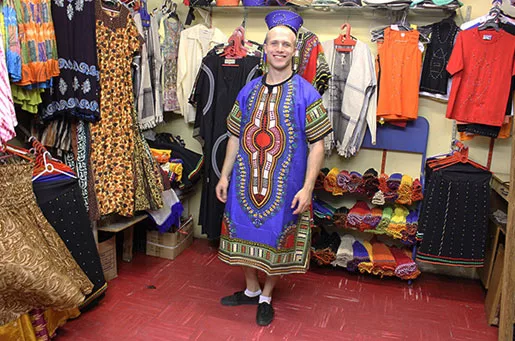IIE MSA is becoming Emeris. Education that’s real-world ready!
Find out moreThroughout the year, Standard Time in South Africa is two hours ahead of Greenwich Mean Time, one hour ahead of Central European Winter Time, and seven hours ahead of US Eastern Standard Winter Time. There is no daylight savings time in South Africa.
South Africa’s climate is mostly sunny, and the average number of sunshine hours each day is among the highest in the world: 8.5 compared to 3.8 in London, 6.4 in Rome, and 6.9 in New York. In the area where our campus is located, winters are mild and clear, and most of the rainfall is in summer.
Average maximum temperatures in degrees Celsius for some of the major cities and tourist centres are:

| . | Summer | Winter |
|---|---|---|
| Joburg | 26° | 17° |
| Cape Town | 28° | 17° |
| Bloemfontein | 29° | 16° |
| Durban | 28° | 21° |
See the following website for a 7-day extended forecast (search for Gauteng, Johannesburg): www.southafricanweather.co.za
The South African currency unit is the Rand, denoted by the symbol R. (R1.00 = 100 cents.) There is no restriction on the amount of foreign currency you may bring into the country, but it must be declared at customs when you arrive.
You are advised to open a bank account as soon as possible after arriving at IIE MSA – you will be assisted with this during your orientation. Bank operating hours vary but are usually from 9:00 – 15:30 on weekdays and from 9:00 – 13:00 on Saturdays. Banks are closed on Sundays and public holidays.
The bank of choice for most IIE MSA students is First National Bank (FNB) as there is a branch at the Featherbrooke shopping complex and an FNB automatic teller machine (ATM) on campus – located in Building D. Representatives of this bank are also available on campus during orientation week to assist you to open an account.
In order to open a bank account, the bank requires details such as your name and address. You will also be required by law to complete a form and asked for some additional personal details and documents such as:
Many banks exempt full-time students from bank charges. You should ask the bank if it is prepared to waive these charges.
In addition to annual tuition fees and residence fees, students are responsible for all their own day-to-day living expenses. Please see the internet for the most up-to-date currency exchange rates.
In South Africa most students are able to live on about R2000 – R3000 per month, excluding accommodation fees. The following are some approximate price guides for budgeting for one person:
| FOOD | COST |
|---|---|
| Milk (2l) | R30.00 |
| Bread (1 loaf) | R18.00 |
| Apples (1kg-seasonal) | R25.00 |
| Potatoes (1kg-seasonal) | R20.00 |
| Mince (1kg) | R80.00 |
| Eggs (6) | R25.00 |
| Cereal (500gr) | R40.00 |
| Fruit Juice (1l) | R36.00 |
| Shampoo | R50.00 |
| Toothpaste | R15.00 |
| Monthly groceries | R1000.00 – R2500.00 |
Make sure you also familiarise yourself with our safety and security guidelines and find out more about on-campus accommodation.